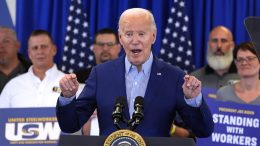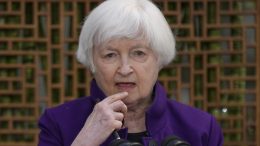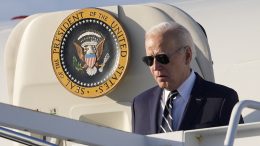Personal values and philosophies collide in “Captain America: Civil War,” an exciting, heartfelt action film from directors Anthony Russo and Joe Russo. Continuing in the Marvel cinematic universe, the story follows a split in the Avengers, as leaders Captain America and Iron Man – Chris Evans and Robert Downey Jr., respectively, reprising their roles – dispute over ideological values.
Reeling with negative press over the collateral damage the superhero members of the Avengers are responsible for, Tony Stark (Downey) and Captain Steve Rogers (Chris Evans) are stuck at a crossroads. Stark supports signing a bill that would transform the Avengers from an independent force into a subsidy of the UN, while Rogers feels no single entity should decide where and when the team will act. But when Roger’s childhood friend, Bucky (Sebastian Stan), a brainwashed super-soldier, is implicated in an international bombing, Stark and Rogers soon challenge one another’s leadership.
At a time when superhero movies are ever-frequent and increasingly popular, one might expect the storyline to always resemble a living comic book. It is instead a pleasant surprise when the writers are able to approach from a more mature angle, theorizing the possible repercussions a lone vigilante group would have upon society. In “Captain America: Civil War,” many of Marvel Studios’ previously-established characters, and a few new appearances, are used to explore these ideas. Featuring vibrant action, the film dazzles with well-choreographed fight scenes and thrills.
Although most of the story focuses on the conflict between Captain America and Iron Man, the supporting characters are not downplayed; instead of feeling like dull additions to the background, they are used to advance the plot, and help display the division between both sides of the team. Evans and Downey in particular are engaging as the film’s driving force, but their emotion would be nothing without the total dedication of the cast. The price of their actions is exemplified by the film’s villain, who uses his own hostility toward the Avengers to further drive apart the team.
However, the filmmakers do make a glaring mistake by including this rather unnecessary villain; the story already provided enough conflict to cause Captain America and Iron Man’s alliance to fracture. The story does focus on the conflict between the two main characters, but the first half takes too many breaks to follow the villain’s subplot. In this sense, the story culminates in a revelation that doesn’t go far enough, as if the filmmakers were afraid to make the story too dark. The “war” would have happened with or without the villain, leaving a lot of plot hollow amid an otherwise strong narrative.
Dropping the audience into highly entertaining action sequences and questioning just how far a hero should go to save the day, “Captain America: Civil War” manages to pull audience’s into the world of its characters. Directors Anthony Russo and Joe Russo have staged a new level for Marvel’s cinematic universe, one that is introspective enough to forgive some of its narrative flaws.
My grade: 7.5 out of 10 stars.
(Timothy Hogg is a copy editor for The Derrick./The News-Herald. He has a minor in film and media studies from Slippery Rock University. Readers may contact him by email at timothyhogg.thederrick@gmail.com.)












































